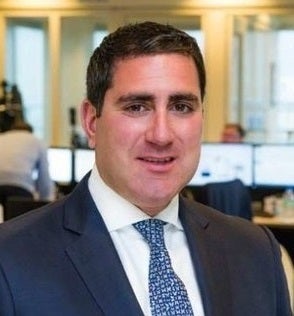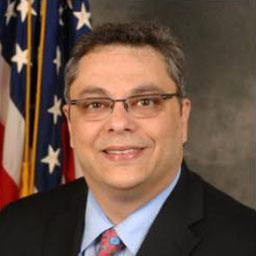Medical Devices
See the following -
New Version Of The PACS Viewer Aycan OsiriX PRO Available
With the new aycan OsiriX PRO workstation with 64-bit and CE mark as a Class IIb medical device, aycan Digitalsysteme GmbH again adds further clinical applications and workflow improvements to its popular software... Read More »
- Login to post comments
Nonin Medical, Inc. Collaborates With Qualcomm Life To Provide Pulse Oximetry For The 2net Platform For Wireless Health Solutions
Nonin Medical, Inc., the inventor of finger- pulse oximetry and a leader in noninvasive medical monitoring, today announced that the company's Onyx® II Model 9560 Fingertip Pulse Oximeter is now compatible with the 2net™ Platform for wireless health solutions. Read More »
- Login to post comments
O'Reilly Report Explores Open Solutions to Health IT
Although many programmers and public interest advocates come to the concepts of free software, standards, open data, and transparent institutions out of idealism, modern businesses and governments are being driven to these same solutions out of the practical need to meet high expectations with diminishing resources. The ways in which the health care field has been incrementally adopting these paths are the subject of a new report, written by me and released by O'Reilly Media, called The Information Technology Fix for Health: Barriers and Pathways to the Use of Information Technology for Better Health Care. Read More »
- Login to post comments
On the Lack of Cyber Security of Medical Devices
 Two weeks ago the U.S. Food and Drug Administration advised hospitals not to use Hospira's Symbiq infusion system, concluding that a security vulnerability enables hackers to take remote control of the system. The agency issued the advisory some 10 days after the U.S. Department of Homeland Security warned of the vulnerability in the pump. My view is that this will be the first of many advisories. For years, manufacturers of medical devices depended on the “kindness of strangers” assuming that devices would never be targeted by bad actors. EKG machines, IV pumps, and radiology workstations are all computers, often running un-patched old operating systems, ancient Java virtual machines, and old web servers that no one should currently have deployed in production.
Two weeks ago the U.S. Food and Drug Administration advised hospitals not to use Hospira's Symbiq infusion system, concluding that a security vulnerability enables hackers to take remote control of the system. The agency issued the advisory some 10 days after the U.S. Department of Homeland Security warned of the vulnerability in the pump. My view is that this will be the first of many advisories. For years, manufacturers of medical devices depended on the “kindness of strangers” assuming that devices would never be targeted by bad actors. EKG machines, IV pumps, and radiology workstations are all computers, often running un-patched old operating systems, ancient Java virtual machines, and old web servers that no one should currently have deployed in production.
- Login to post comments
ONC at OSCON 2012: What Could the Future Bring?
The open source software (OSS) community is full of creative software coders developing amazing computer applications collaboratively. Recently I witnessed the power of their collaborative innovation first hand at the Open Source Convention (OSCON) in Portland, OR. This was the conference’s 12th year…but my first experience. Read More »
- Login to post comments
Open Medical Hardware: The Open Stent
The stent pictured above is an example of an Open Stent from NDC, makers of nitinol materials and devices, particularly for medical applications. In their introduction to the project, they write: Read More »
- Login to post comments
Open mHealth Popular Standard (Part 2)
 Normally, one wants to break information down into chunks as small as possible. Bydoing this, you allow data holders to minimize the amount of data they need to send data users, and data users are free to scrutinize individual items or combine them any way they want. But some values in health need to be chunked together. When someone requests blood pressure, both the systolic and diastolic measures should be sent. The time zone should go with the time. On the other hand, mHealth doesn’t need combinations of information that are common in medical settings. For instance, a dose may be interesting to know, but you don’t need the prescribing doctor, when the prescription was written, etc. On the other hand, some app developers have asked the prescription to include the number of refills remaining, so the app can issue reminders.
Normally, one wants to break information down into chunks as small as possible. Bydoing this, you allow data holders to minimize the amount of data they need to send data users, and data users are free to scrutinize individual items or combine them any way they want. But some values in health need to be chunked together. When someone requests blood pressure, both the systolic and diastolic measures should be sent. The time zone should go with the time. On the other hand, mHealth doesn’t need combinations of information that are common in medical settings. For instance, a dose may be interesting to know, but you don’t need the prescribing doctor, when the prescription was written, etc. On the other hand, some app developers have asked the prescription to include the number of refills remaining, so the app can issue reminders.
- Login to post comments
Open Source Software Is Transforming Healthcare
 In the summer of 2022, the UK government and NHS England published its Open Source Policy, stating that open source technology is: Particularly suitable for use within the healthcare industry where, through active collaboration between IT suppliers and user/clinicians communities, solutions can be honed to maximise benefits to delivery of health and social care. The public statement by NHS England is just the latest development in a broader trend: The wholehearted embrace of open source software by the healthcare sector. And no wonder; open source presents myriad opportunities for this most complex of industries, with potential solutions across various sub-sectors. Yes, open source is now powering everything from medical wearables to healthcare human resource management.
In the summer of 2022, the UK government and NHS England published its Open Source Policy, stating that open source technology is: Particularly suitable for use within the healthcare industry where, through active collaboration between IT suppliers and user/clinicians communities, solutions can be honed to maximise benefits to delivery of health and social care. The public statement by NHS England is just the latest development in a broader trend: The wholehearted embrace of open source software by the healthcare sector. And no wonder; open source presents myriad opportunities for this most complex of industries, with potential solutions across various sub-sectors. Yes, open source is now powering everything from medical wearables to healthcare human resource management.
- Login to post comments
openFDA Unveils Cache of Medical Device Data
 OpenFDA is releasing information on medical devices that could spur innovation and advance scientific research. OpenFDA’s Application Programming Interface (API) expands the previous openFDA resources about medical device-related adverse events and recalls by incorporating information from the total medical device product life cycle. This includes current data on device classification (6000 records), 24,000 registrations of device companies and establishments, and the companies’ listings of over 100,000 devices. Data since 1976 on 30,000 device approvals and approval supplements, and 141,000 device clearance decisions (510(k) and de novo types) are now on openFDA.
OpenFDA is releasing information on medical devices that could spur innovation and advance scientific research. OpenFDA’s Application Programming Interface (API) expands the previous openFDA resources about medical device-related adverse events and recalls by incorporating information from the total medical device product life cycle. This includes current data on device classification (6000 records), 24,000 registrations of device companies and establishments, and the companies’ listings of over 100,000 devices. Data since 1976 on 30,000 device approvals and approval supplements, and 141,000 device clearance decisions (510(k) and de novo types) are now on openFDA.
- Login to post comments
OpenSSF: On A Mission To Improve Security Of Open Source Software
 Open source software (OSS), once a niche segment of the development landscape, is now ubiquitous. This growth is fantastic for the open source community. However, as the usage of OSS increases, so do concerns about security. Especially in mission-critical applications— think medical devices, automobiles, space flight, and nuclear facilities—securing open source technology is of the utmost priority. No individual entity, whether developers, organizations, or governments, can single-handedly solve this problem. The best outcome is possible when all of them come together to collaborate. The Open Source Security Foundation (OpenSSF) formed to facilitate this collaboration.
Open source software (OSS), once a niche segment of the development landscape, is now ubiquitous. This growth is fantastic for the open source community. However, as the usage of OSS increases, so do concerns about security. Especially in mission-critical applications— think medical devices, automobiles, space flight, and nuclear facilities—securing open source technology is of the utmost priority. No individual entity, whether developers, organizations, or governments, can single-handedly solve this problem. The best outcome is possible when all of them come together to collaborate. The Open Source Security Foundation (OpenSSF) formed to facilitate this collaboration.
- Login to post comments
Participants at Arab Health 2016 Show the Way for Health IT
 Arab Health is the largest healthcare exhibition and medical congress in the Middle East, and arguably the second largest one in the world. It took place from January 25 to 28 at the Dubai International Convention & Exhibition Centre in Dubai, United Arab Emirates (UAE). This conference attracted about 150,000 visitors from a region half a billion people call home: this covers Pakistan, Afghanistan, Iran, Iraq, Saudi Arabia, Turkey, Egypt, Morocco and a lot of other countries. Why all these people attend Arab Health? Let me give you a couple of examples... Read More »
Arab Health is the largest healthcare exhibition and medical congress in the Middle East, and arguably the second largest one in the world. It took place from January 25 to 28 at the Dubai International Convention & Exhibition Centre in Dubai, United Arab Emirates (UAE). This conference attracted about 150,000 visitors from a region half a billion people call home: this covers Pakistan, Afghanistan, Iran, Iraq, Saudi Arabia, Turkey, Egypt, Morocco and a lot of other countries. Why all these people attend Arab Health? Let me give you a couple of examples... Read More »
- Login to post comments
Physicians’ Growing Use Of The Internet: Where Trust And Value Drive Information Search
This is the fifth and final post of my thinking about physicians seeking health information in the context of current health care dynamics and prospects for health reform on behalf of Elsevier and their launch of the ClinicalKey Experience tour.
- Login to post comments
Regarding Open Source, Security, and Cloud Migration, Old Prejudices Die Hard in Health Care
 Although the health care industry has made great strides in health IT, large numbers of providers remain slow to reap the benefits of a “digital transformation”. Health care organizations focus on what they get paid for and neglect other practices that would improve care and security. At conferences and meetings year and after year, I have to listen to health care leaders tediously explode the same myths and explain the same principles over and over. In this article I'll concentrate on the recent EXPO.health conference, put on in Boston by John Lynn's Healthcare Scene, where the topics of free and open source EHRs, security, and cloud migration got mired down in rather elementary discussions.
Although the health care industry has made great strides in health IT, large numbers of providers remain slow to reap the benefits of a “digital transformation”. Health care organizations focus on what they get paid for and neglect other practices that would improve care and security. At conferences and meetings year and after year, I have to listen to health care leaders tediously explode the same myths and explain the same principles over and over. In this article I'll concentrate on the recent EXPO.health conference, put on in Boston by John Lynn's Healthcare Scene, where the topics of free and open source EHRs, security, and cloud migration got mired down in rather elementary discussions.
- Login to post comments
Roche, Medivation, Santen and Biomarin Will Discuss CDISC Implementation Challenges At The Next Silicon Valley BioTalks
Panel composed of CDISC experts from Roche, Medivation, Santen, Biomarin and Clinovo will discuss and share ideas around the topic: “CDISC for Medical Device Companies: Progress Made and Best Practices from Pharma/Biotech Implementation”. Read More »
- Login to post comments
Singing A New Tune: Redefining Innovation In The Medical Device World
In the world of medical devices, innovation has traditionally been defined as the invention of a new device or a new technology that can be packaged into a device, expanding the number of possible medical procedures or at least replacing old ones with those that are new, improved and lemon-scented... Read More »
- Login to post comments